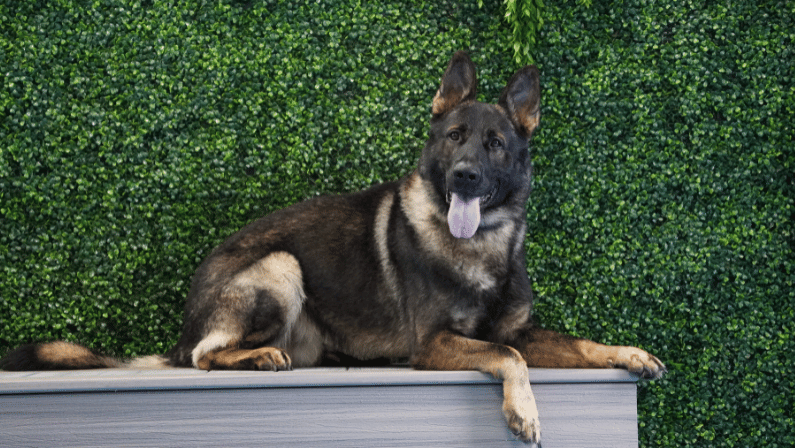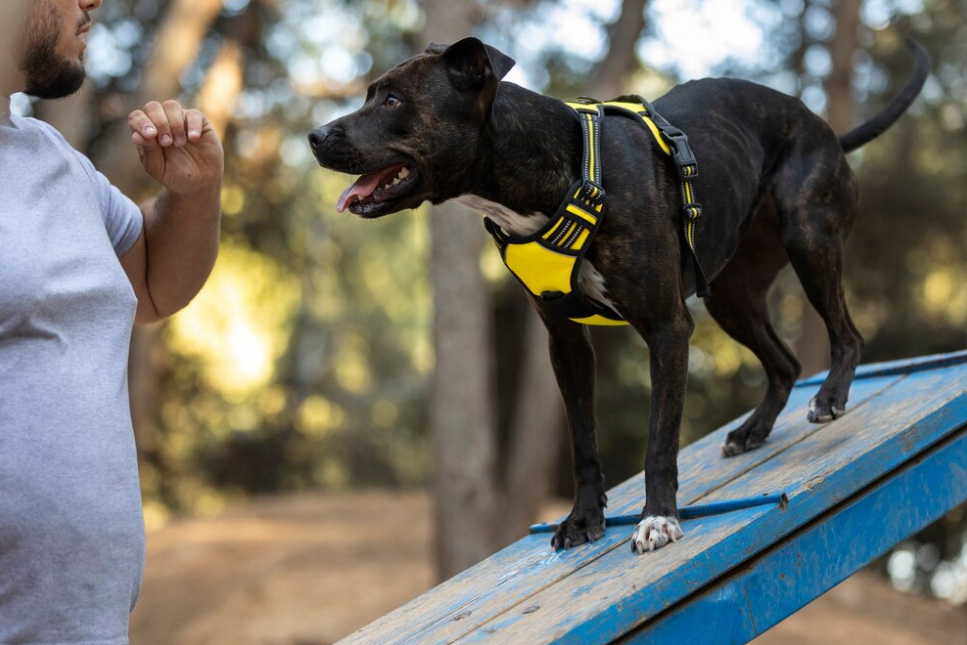In which 10 medical conditions it is safe to give trazodone?
Trazodone is a remedy commonly prescribed for human beings to address various mental disorders and associated symptoms. However, with the multiplied popularity of mental health problems in dogs, many pet owners wonder if trazodone for dogs may be safely administered to their bushy companions.
This blog will explore the potential use of trazodone for dogs and become aware of ten scientific situations in which its usage is considered secure and beneficial. It is important to note that each of the facts described here is for educational purposes only, and a fitting session with a veterinarian is essential before starting any medicine for the one you love pet.
1. Anxiety disorders in dogs:
Dogs may also face tension-related issues like separation anxiety, noise phobias, or widespread tension. With the guidance of an experienced veterinary specialist, trazodone may be prescribed for short-term use to deal with anxiety symptoms and improve an experience of calmness in puppies.
2. Dogs with extreme aggression:
Dog aggression can be complex and doubtlessly risky. Trazodone may be prescribed a few times to reduce anxiety-precipitated charges, support dealing with behavior issues, and enhance safety for owners, different animals, and the dog.
3. Fearsome behaviors:
Fearsome-based responses in puppies, such as fear about thunderstorms, fireworks, or new environments, can lead to distress or even harm. For precise occasions, a veterinarian may also prescribe trazodone to diminish fearsome-related behavioral problems, permitting dogs to manage more efficiently with stressors.
4. Noise sensitivity in dogs:
A few dogs show a severe sensitivity to loud noises, mainly agitation or panic. Giving adequate trazodone dosage may be a part of a comprehensive remedy plan to lessen noise sensitivity and improve the canine’s overall well-being.
5. Sleep disorders:
Similar to humans, dogs may have sleep disturbances and insomnia. In a few instances, trazodone may be prescribed to aid dogs in getting the rest they require, assisting them in preserving a healthier sleep pattern.
6. Coping with medical procedures:
Some scientific tactics, vet visits, grooming, or radiographs can cause anxiety and stress in dogs. Trazodone has been applied to help calm canine sufferers before and during such procedures, ensuring a more cozy experience for both the puppy and the veterinary team of workers.
7. Reintegrating Rescued dogs:
Dogs that have been adopted or rescued frequently face tough transitions. With veterinary steering, trazodone can help lessen stress, aid in the adjustment process, and enhance the overall well-being of these puppies.
8. Storm phobia:
Storm phobia is common in dogs, which showcase extreme fear and tension during thunderstorms. Trazodone can be part of a complete behavior amendment plan, offering remedies and supporting dogs to cope with these phobic episodes.
9. Compulsive disorders:
A few dogs show off compulsive behaviors like immoderate licking, tail chasing, or paw gnawing, which can be distressing for the dog and the owner. Trazodone, when used with behavioral change strategies, may also assist in the control of those compulsive disorders.
10. Post-surgical healing of dogs:
In post-surgical conditions, dogs may additionally revel in anxiety and restlessness at some recovery point. With veterinary supervision, trazodone may be prescribed to promote relaxation, help recovery, and provide comfort during restoration.
What precautions ought to be taken while giving trazodone to your puppies?

With the consent and advice of a certified veterinarian, it will be good to give trazodone. It’s critical to understand that you should constantly visit a veterinarian before giving any remedy to your canine, including trazodone. Here are a few precautions to do not forget:
Veterinary session:
Speak to your veterinarian to determine whether a certain trazodone dosage suits your puppy’s condition. A professional should advise dosage and management.
Clinical records:
Tell your vet about your dog’s medical records and any existing health situations or medications your dog takes. Trazodone may additionally engage with certain medicinal drugs or situations, including seizures.
Accurate dosage:
Observe the vet’s commands closely concerning the proper dosage. Veterinary experts usually prescribe trazodone for dogs by weight or body length.
Regular monitoring:
Have a deep eye on your dog’s conduct and regular health while on trazodone. Keep noticing any changes and discuss them with the veterinarian.
Starting slowly:
While first beginning trazodone, it’s often encouraged; first of all, a low potency dose and steady growth if vital. This allows your dog’s body system to adjust to the drugs.
Side effects of giving trazodone to your dogs:
Study the ability to face outcomes of trazodone, along with sedation, lethargy, gastrointestinal issues, or adjustments in conduct. If any side consequences arise, visit your veterinarian.
Avoid abrupt discontinuation:
Do not extend the period of giving trazodone abruptly or without consulting your veterinarian. A gradually lower dosage is often given when discontinuing the medication.
What are the enormous benefits of giving trazodone to puppy puppies?
Trazodone is a remedy usually used to deal with anxiety and despair in human beings. While it is sometimes used off-label in veterinary remedies to manage behavioral problems in puppies, it is critical to note that Trazodone should always be prescribed by a veterinarian and used under their guidance. Here are some advantages of giving Trazodone to your furry friends:
1. Tension relief:
Trazodone can help reduce tension signs and symptoms in dogs, making them calmer and more at ease. It could be helpful in relieving anxiety, noise phobias, or travel anxiety.
2. Conduct modification resource:
Trazodone is more often used as an adjunct to behavior amendment programs in dogs with behavioral issues. It can help lower a dog’s anxiety levels, making it less complicated to examine new behaviors and alter them at some stage in education.
3. Sedation:
Trazodone has soothing properties that could assist dogs in sleeping or loosening up during stressful conditions such as veterinary visits or grooming classes.
4. Enables medical procedures:
Trazodone may be useful for puppies’ present process medical methods, like X-rays or examinations, that can cause worry or anxiety. It can help make the procedure much less disturbing for them.
Conclusion
Even as trazodone can benefit specific scientific conditions in puppies, it’s essential to keep in mind that it must only be administered under a veterinarian’s observation. Correct analysis, appropriate dosage, and continuous monitoring are critical factors in using trazodone for dogs.
Constantly seek advice from a veterinary expert who can thoroughly check your dog’s needs and increase a comprehensive treatment plan, incorporating trazodone as required. By prioritizing your dog’s overall well-being, you can ensure the secure use of trazodone, assisting them in leading a healthier and happier life.












